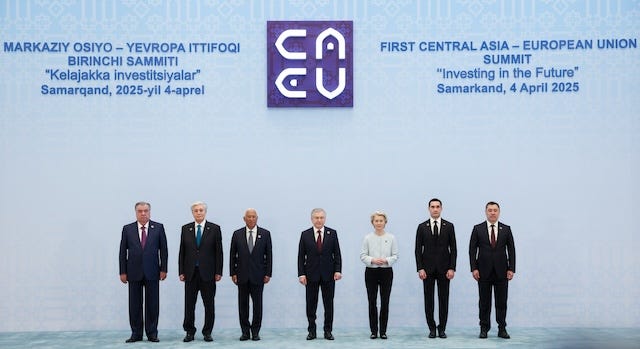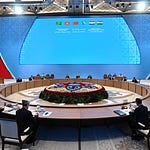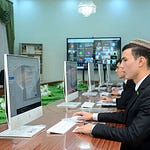This episode of the CAPS Unlock podcast returns to the landmark EU–Central Asia Summit held in Samarkand earlier this month, exploring the contours of Brussels’ latest overtures to the region.
The summit brought together the five Central Asian presidents and top EU leadership, who jointly proclaimed a new “strategic partnership.” A headline €12 billion pledge under the EU’s Global Gateway Initiative includes funds for infrastructure, climate action, and digital connectivity. But amid limited media access and muted coverage, questions remain over how tangible – and how inclusive – these pledges will be.
Attending the summit in person (sort of) gave us a first-hand view of how the tightly managed event contrasted with the EU’s stated goals of openness and cooperation.
But how much of an impact did all this really make in the region?
This episode also features a special interview with Aleška Simkić, the EU Ambassador to the Republic of Kazakhstan. She discusses ongoing negotiations to simplify Schengen visa procedures for Kazakh citizens, the political significance of person-to-person exchanges, and the EU’s long-term plans to invest in critical raw materials. Simkić outlines why the EU believes this is about partnership – not dependency – and how European engagement could offer a different model to that of other major powers.
We also reference, at the start of the episode, a worrying report about an unseasonal heatwave that struck Central Asia last month. Read more here: https://www.worldweatherattribution.org/extraordinary-march-heatwave-in-central-asia-up-to-10-c-hotter-in-a-warming-climate/

















Share this post